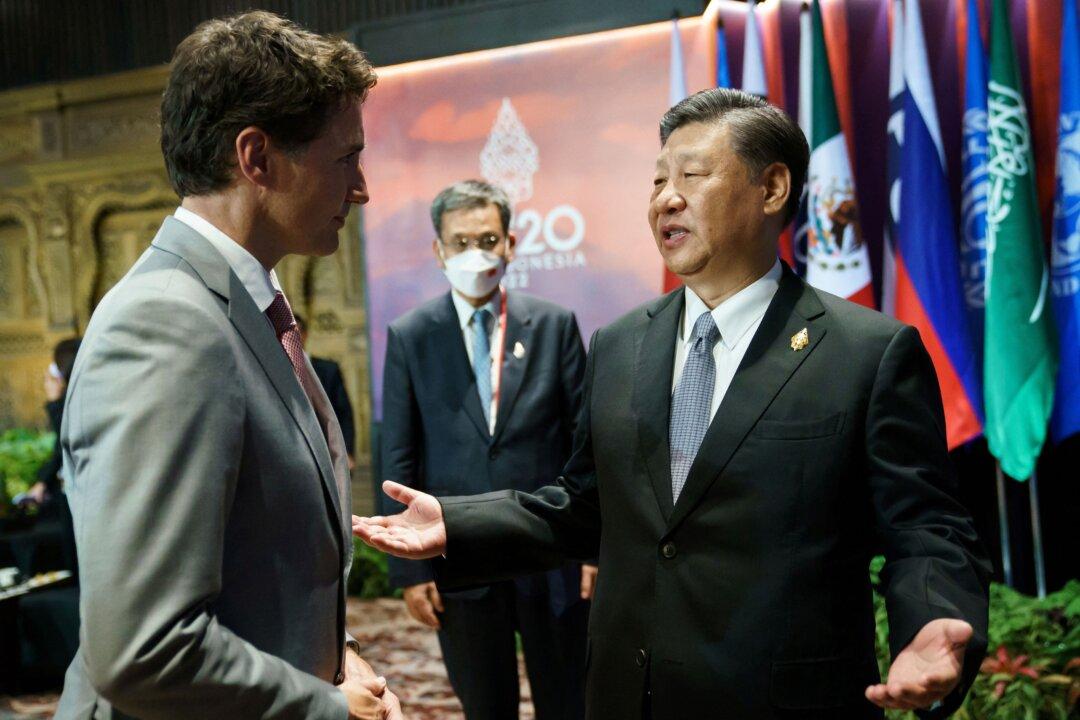Chinese leader Xi Jinping’s scolding of Prime Minister Justin Trudeau is a manifestation of the Chinese Communist Party’s (CCP) new aggressive approach toward foreign relations, also known as ‘wolf-warrior’ diplomacy, some experts say.
The brief exchange between the two national leaders on the sidelines of the G20 summit on Nov. 16 raised eyebrows as Xi rebuked Trudeau, saying he shouldn’t have “leaked” their previous discussion to the media. The Prime Minister’s Office said Trudeau had raised concerns about Chinese interference in Canada, including reports of de facto Chinese police stations operating in Toronto, during their talk.





